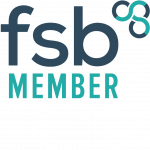How to Secure a Mortgage with Complex Income
In the dynamic UK mortgage landscape, how does one navigate the process when their income is anything but straightforward? For individuals with complex incomes, such as self-employed professionals, freelancers, contractors, and others with non-traditional income streams, applying for a mortgage presents unique challenges. We’re here to provide insights into overcoming these obstacles.
Understanding Complex Income
A ‘complex income’ typically involves varied and unpredictable earnings. This includes income from freelancing, contracting, business dividends, rental properties, and more. There are more than 4.24 million self-employed in the UK. [1] This statistic alone shows the vast number of people affected by these complications.
Complex income streams may make mortgage providers more cautious due to their less predictable nature, and this is why presenting a well-structured and thorough mortgage application becomes paramount. Lenders traditionally favour stability and predictability in income, as it suggests a lower risk of loan default. Those with complex incomes must therefore go the extra mile to demonstrate financial reliability and stability. This often involves providing more comprehensive documentation, a strong credit history, and possibly a higher deposit to mitigate the perceived risk. By effectively showcasing financial responsibility and planning, individuals with complex incomes can successfully navigate the mortgage application process.
Mortgage Application Considerations
Embarking on the mortgage application journey with a complex income can seem daunting. Here are some tips to unravel the complexity of the application process, in order to approach this crucial step confidently:
- Documentation: Extensive documentation is critical. Lenders will likely require tax returns, bank statements, invoices, and evidence of future contracts or work.
- Credit Score: A healthy credit score is vital. Regular checks and addressing discrepancies can enhance mortgage approval prospects.
- Professional Assistance: Utilising a mortgage adviser experienced in complex income cases can be beneficial. They can guide you through various lenders’ criteria and help find suitable mortgage products.
Challenges and Solutions
The path to securing a mortgage with complex income is often burdened with unique obstacles. Income variability is a primary challenge. Lenders generally favour applicants with steady, predictable incomes. For those with fluctuating income patterns, it’s important to demonstrate financial stability over time. This can be achieved by showing a stable or upward trend in income and maintaining sufficient savings to cover mortgage payments during leaner periods. Another critical aspect is proof of stability. Lenders often seek reassurance of future income, such as ongoing contracts or well-defined work plans. Before starting your application, it’s advisable to consult with a mortgage adviser on how to present this information. They can guide you in organising and highlighting your financial strengths, thereby enhancing the appeal of your application to potential lenders.
Mortgage Options and Lender Selection
Understanding the available options and selecting the right lender are an integral part of the process if you have a complex income. Traditional high-street banks might present a straightforward path for those with standard employment incomes, but when it comes to complex or irregular income streams, their criteria might not be as accommodating. This is where specialist lenders come into the picture, offering products tailored to meet the needs of individuals whose income patterns don’t fit the traditional mould. These lenders often have a deeper understanding of different income structures, from self-employment to irregular freelance earnings, and are more flexible in their lending criteria.
Navigating this landscape requires a thorough understanding of the different mortgage products available. Fixed-rate mortgages, for instance, can provide stability in monthly repayments – a significant advantage for those with fluctuating incomes. On the other hand, tracker or offset mortgages offer flexibility, potentially allowing borrowers to make overpayments in times of higher income, which can reduce interest payments. It’s not just about the type of mortgage, but also the terms attached, such as the length of the mortgage, the interest rate, and any associated fees.
The selection of a lender should be based on careful consideration of your specific financial situation. This involves researching a wide variety of lenders, comparing different mortgage products, and understanding the lending criteria of various institutions. For those with complex incomes, it can be beneficial to seek advice from a mortgage adviser. They can provide valuable insights into which lenders are more likely to accommodate your income type, and help you navigate the application process to increase your chances of successful mortgage approval.
Practical Tips
One of the most crucial aspects for those with complex incomes seeking a mortgage is to have a clear and comprehensive understanding of their budget. It’s essential to realistically assess your ability to make mortgage repayments, especially during periods when your income might be lower than average. This involves careful financial planning and preparation for fluctuations in income.
Equally important is transparency in disclosing your financial situation to potential lenders. Full disclosure not only builds trust with lenders, but also helps them provide a mortgage product that best suits your financial capacity. Providing detailed information about all sources of income, along with any potential liabilities, ensures there are no surprises during the mortgage process and can prevent complications or rejections.
_________
Securing a mortgage with a complex income in the UK, while challenging, is certainly achievable with the right approach and preparation. Thorough budgeting and complete transparency in your financial dealings are key to navigating through the mortgage application process. By demonstrating a clear understanding of your financial situation and being upfront with lenders, you increase your chances of not only obtaining a mortgage, but also ensuring it aligns well with your financial capabilities. In this dynamic property market, these practices are vital for those with non-traditional income streams to realise their homeownership aspirations.
Ready to dive into your mortgage journey now that you know your complex income won’t hold you back? Reach out to our team of expert mortgage advisers for personalised guidance and start turning your homeownership dreams into reality.
YOUR HOME MAY BE REPOSSESSED IF YOU DO NOT KEEP UP REPAYMENTS ON YOUR MORTGAGE.
Status Mortgage Services is a trading style of Status Financial Services Limited (Company number 08983516) which is an appointed representative of the Openwork Partnership, a trading style of Openwork Limited which his authorised and regulated by the Financial Conduct Authority.
Approved by The Openwork Partnership on 06/12/23
SOURCES:
[1] Statista – Number of self-employed workers in the United Kingdom from May 1992 to July 2023
https://www.statista.com/statistics/318234/united-kingdom-self-employed/










